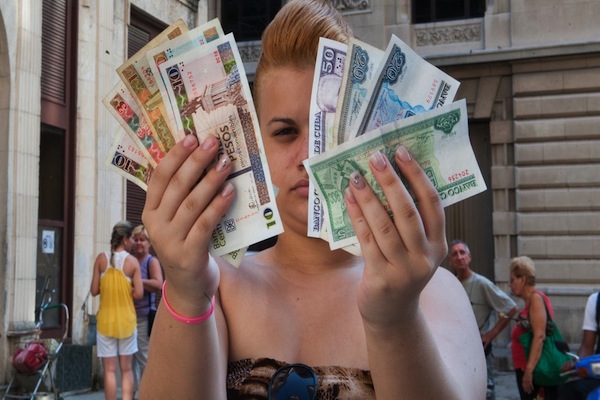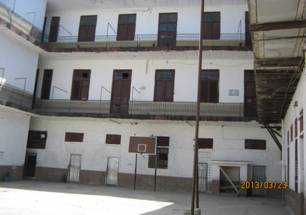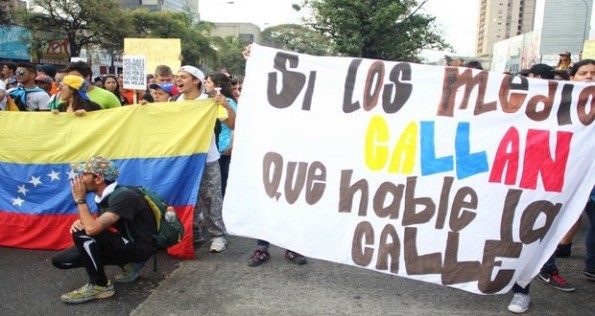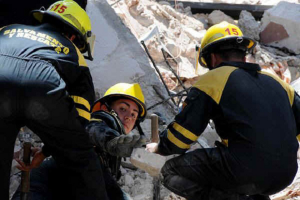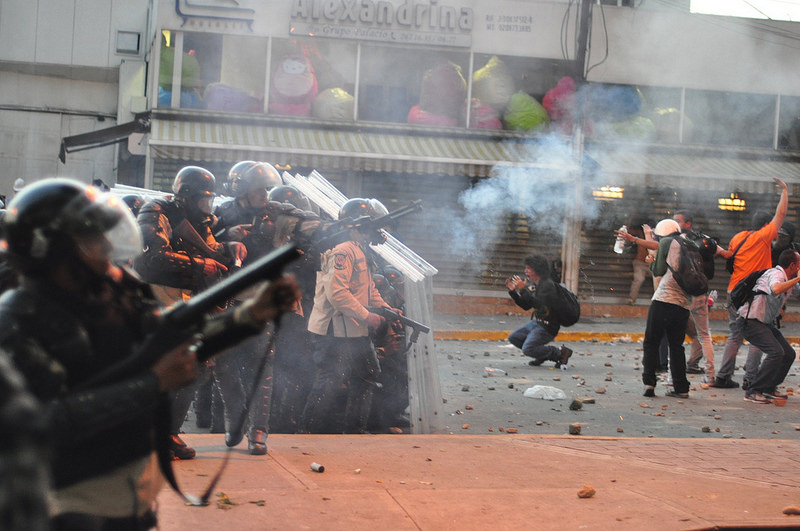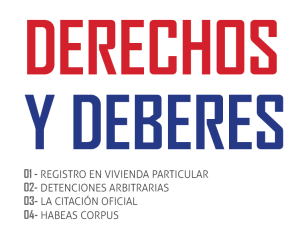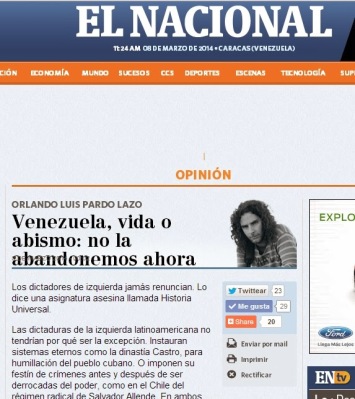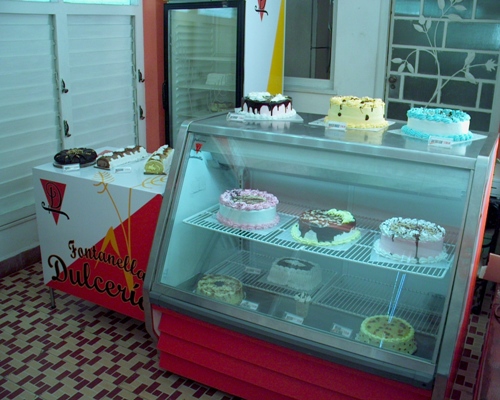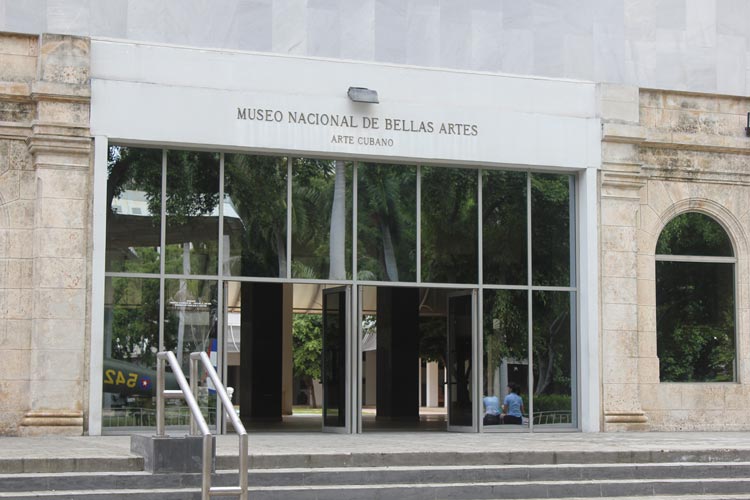 In a statement issued on Tuesday, February 11th, Rogelio Sierra Diaz, Cuba’s deputy foreign minister, reported that the Council of Foreign Ministers of the European Union (EU) had authorized the European Commission and the EU’s senior representative for foreign affairs and security policy, Catherine Ashton, to begin negotiations on a political dialogue and cooperation agreement with the Republic of Cuba. He added that “Cuba will consider the invitation from the Europeans in a respectful and constructive way and within the context of Cuba’s sovereignty and national interests.”
In a statement issued on Tuesday, February 11th, Rogelio Sierra Diaz, Cuba’s deputy foreign minister, reported that the Council of Foreign Ministers of the European Union (EU) had authorized the European Commission and the EU’s senior representative for foreign affairs and security policy, Catherine Ashton, to begin negotiations on a political dialogue and cooperation agreement with the Republic of Cuba. He added that “Cuba will consider the invitation from the Europeans in a respectful and constructive way and within the context of Cuba’s sovereignty and national interests.”
This represents the possible start of negotiations on a bilateral agreement, which depends on the Cuban authorities’ willingness to accept the invitation. In this regard Catherine Ashton said, “I hope Cuba will take up this offer and that we can work towards a stronger relationship,” but added “the decision is not a policy change from the past,” which can be interpreted as a change of tone, not of substance. Meanwhile the EU ambassador to Cuba said that the policy is the same but there is “a new dynamic” and called the decision a “big step forward for a possible agreement,” adding that the agreement would “formalize cooperation at all levels on a firmer legal and policy basis.”
Transitions towards democracy are dependent on both internal and external factors, with the latter assuming greater or lesser importance in relation to the strength or weakness of the former. In retrospect we can see that this has been exactly the case with Cuba.
When revolutionary forces came to power in 1959, they became the source of all laws and led the country towards totalitarianism. The constitution of 1940 was replaced with the Fundamental Law of the Cuban State, which allowed the designated prime minister to assume the role of head of government and the recently created Council of Ministers to take over the functions of Congress. Subsequently, power became concentrated in the hands of the strongman and property in the hands of the state. Civil society was dismantled, and civil liberties and human rights were restricted. As a result Cubans were relieved of vital tools and opportunities for civil discourse, which meant losing their status as citizens.
In 1996 the countries of the then European Community, which maintained bilateral relations with Cuba, established the Common Position in order to “encourage a process of transition to pluralist democracy, respect for human rights and fundamental freedoms as well as a sustainable recovery and improvement of the living conditions of the Cuban people.” That decision, which provided moral support to the island’s opposition, sharpened differences between the EU and the Cuban government. When the European Commission delegation took up residence in Havana in 2002, it welcomed Cuba’s request to sign on to the Cotonou Agreement (1), opening a new stage in bilateral relations. However, the imprisonment of 75 peaceful dissidents in 2003 and the execution of three young men who attempted to commandeer a boat to escape the country led the European Union Council (2) to reaffirm that its Common Position remained valid and in force.
In 2008, when hurricanes deepened the country’s internal crisis, the government signed an accord restoring relations with the EU and agreed to restart a political dialogue. The European Commissioner for Development and Humanitarian Aid and the Minister of Foreign Affairs of Cuba issued a statement announcing the decision, with the Spanish government playing a key role, repealing the Common Position. However, just as Spain assumed the EU presidency in 2010, two events dashed the arrangement: Cuba refused entry to Spanish EU deputy Luis Yanez and the Cuban political prisoner Orlando Zapata Tamayo died the following month of a prolonged hunger strike.
If the Cuban government were now to accept the EU’s offer, it would have to agree to a dialogue on the subject of human rights and proceed to reestablish what it should never have abolished in the first place. Interestingly, we are not operating under the same conditions as in the past, when then Minister of Foreign Affairs, Felipe Pérez Roque, said in reference to the Commission on Human Rights in Geneva, “If the EU were to drop its insistence on a sterile and confrontational voting procedure, then Cuba would be inclined to sit down with the EU to work out a plan.” He added that Cuba “would feel a moral responsibility to abide by the European decision and would sign the Convention on Economic, Social and Cultural Rights the next day, indicating that we had entered a new stage in our relationship.”
Judging from the words of Catherine Ashton, certain demands would have to be on the table for EU countries to agree to negotiations.
She noted that, first, Cuban statutes would have to be brought into compliance with the United Nations Charter and all its instruments of international law such as the Universal Declaration of Human Rights. Article 30 of this document states, “Nothing in this Declaration may be interpreted as conferring any rights to a state, group or person to engage in any activity or perform any act aimed at the destruction of any of the rights and freedoms set forth herein.” It is a provision that for Cuba has special significance, as it was one of the sponsors of and signatories to this important document. Secondly, it would also have to ratify human rights conventions it signed 2008, which form the legal basis for the principle of personal dignity and guarantee that the planned changes will have a positive effect on Cuban society.
To meet the first requirement, the Cuban government would have to halt political repression and summary imprisonment. EU countries would encourage exchanges with civil society so that Cubans might gradually emerge from the political margins to recover their status as citizens. This would help promote popular sovereignty so that Cubans might become the protagonists of their history and destiny.
In addition to other issues on the table there should be a requirement that the soon-to-be drafted Labor Code once again include the right to form free trade unions and the right to freely hire workers, two things that were part of the Labor Legislation of 1938 and the Constitution of 1940. Similarly, the new Investment Law should allow participation by Cuban nationals since the programs in which foreign investors are being invited to participate will be worthwhile only if Cubans benefit from these changes by having their rights restored. In the case of the Mariel Special Development Zone, the project will be of enormous benefit to the Cuban economy provided it helps lead to the country’s democratization. Otherwise, these steps will only strengthen the current economic and political model and condemn Cubans to continued civic, political and economic poverty.
(1) A comprehensive partnership agreement between the EU and 79 countries from Africa, the Caribbean and the Pacific. Article 9, paragraph 2 states: “The Parties undertake to promote and protect all fundamental freedoms and human rights, whether civil and political or economic rights.”
(2) Name for the European Community’s heads-of-state and heads-of-government summit, which takes place regularly, at least every six months.
From Diario de Cuba
14 February 2014

